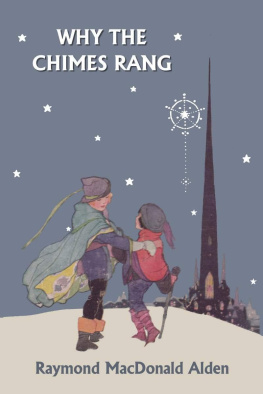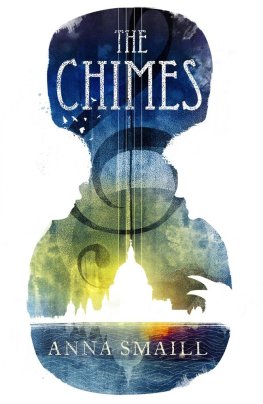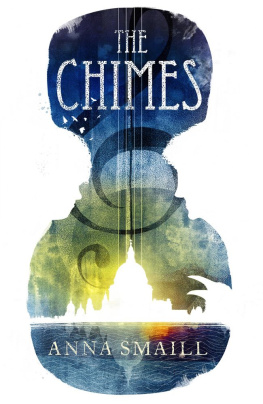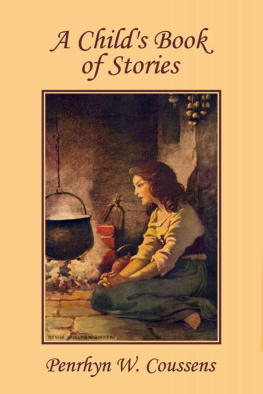Why the Chimes Rang
by
Raymond Macdonald Alden
Yesterday's Classics
Chapel Hill, North Carolina
Cover and Arrangement 2010 Yesterday's Classics, LLC
All rights reserved. No part of this book may be reproduced or retransmitted in any form or by any means without the written permission of the publisher.
This edition, first published in 2010 by Yesterday's Classics, an imprint of Yesterday's Classics, LLC, is an unabridged republication of the work originally published by The Bobbs-Merrill Company in 1908. This title is available in a print edition (ISBN 978-1-59915-062-8).
Yesterday's Classics, LLC
PO Box 3418
Chapel Hill, NC 27515
Yesterday's Classics
Yesterday's Classics republishes classic books for children from the golden age of children's literature, the era from 1880 to 1920. Many of our titles are offered in high-quality paperback editions, with text cast in modern easy-to-read type for today's readers. The illustrations from the original volumes are included except in those few cases where the quality of the original images is too low to make their reproduction feasible. Unless specified otherwise, color illustrations in the original volumes are rendered in black and white in our print editions.
Contents
Why the Chimes Rang
T HERE was once, in a far-away country where few people have ever traveled, a wonderful church. It stood on a high hill in the midst of a great city; and every Sunday, as well as on sacred days like Christmas, thousands of people climbed the hill to its great archways, looking like lines of ants all moving in the same direction.
When you came to the building itself, you found stone columns and dark passages, and a grand entrance leading to the main room of the church. This room was so long that one standing at the doorway could scarcely see to the other end, where the choir stood by the marble altar. In the farthest corner was the organ; and this organ was so loud that sometimes when it played, the people for miles around would close their shutters and prepare for a great thunderstorm. Altogether, no such church as this was ever seen before, especially when it was lighted up for some festival, and crowded with people, young and old.
But the strangest thing about the whole building was the wonderful chime of bells. At one corner of the church was a great gray tower, with ivy growing over it as far up as one could see. I say as far as one could see, because the tower was quite great enough to fit the great church, and it rose so far into the sky that it was only in very fair weather that any one claimed to be able to see the top. Even then one could not be certain that it was in sight. Up, and up, and up climbed the stones and the ivy; and, as the men who built the church had been dead for hundreds of years, every one had forgotten how high the tower was supposed to be.
Now all the people knew that at the top of the tower was a chime of Christmas bells. They had hung there ever since the church had been built, and were the most beautiful bells in the world. Some thought it was because a great musician had cast them and arranged them in their place; others said it was because of the great height, which reached up where the air was clearest and purest: however that might be, no one who had ever heard the chimes denied that they were the sweetest in the world. Some described them as sounding like angels far up in the sky; others, as sounding like strange winds singing through the trees.
But the fact was that no one had heard them for years and years. There was an old man living not far from the church, who said that his mother had spoken of hearing them when she was a little girl, and he was the only one who was sure of as much as that. They were Christmas chimes, you see, and were not meant to be played by men or on common days. It was the custom on Christmas Eve for all the people to bring to the church their offerings to the Christ-child; and when the greatest and best offering was laid on the altar, there used to come sounding through the music of the choir the Christmas chimes far up in the tower. Some said that the wind rang them, and others that they were so high that the angels could set them swinging. But for many long years they had never been heard.
It was said that people had been growing less careful of their gifts for the Christ-child, and that no offering was brought, great enough to deserve the music of the chimes. Every Christmas Eve the rich people still crowded to the altar, each one trying to bring some better gift than any other, without giving anything that he wanted for himself, and the church was crowded with those who thought that perhaps the wonderful bells might be heard again. But although the service was splendid, and the offerings plenty, only the roar of the wind could be heard, far up in the stone tower.
Now, a number of miles from the city, in a little country village, where nothing could be seen of the great church but glimpses of the tower when the weather was fine, lived a boy named Pedro, and his little brother. They knew very little about the Christmas chimes, but they had heard of the service in the church on Christmas Eve, and had a secret plan, which they had often talked over when by themselves, to go to see the beautiful celebration.
"Nobody can guess, Little Brother," Pedro would say, "all the fine things there are to see and hear; and I have even heard it said that the Christ-child sometimes comes down to bless the service. What if we could see Him?"
The day before Christmas was bitterly cold, with a few lonely snowflakes flying in the air, and a hard white crust on the ground. Sure enough, Pedro and Little Brother were able to slip quietly away early in the afternoon; and although the walking was hard in the frosty air, before nightfall they had trudged so far, hand in hand, that they saw the lights of the big city just ahead of them. Indeed, they were about to enter one of the great gates in the wall that surrounded it, when they saw something dark on the snow near their path, and stepped aside to look at it.
It was a poor woman, who had fallen just outside the city, too sick and tired to get in where she might have found shelter. The soft snow made of a drift a sort of pillow for her, and she would soon be so sound asleep, in the wintry air, that no one could ever waken her again. All this Pedro saw in a moment, and he knelt down beside her and tried to rouse her, even tugging at her arm a little, as though he would have tried to carry her away. He turned her face toward him, so that he could rub some of the snow on it, and when he had looked at her silently a moment he stood up again, and said:
"It's no use, Little Brother. You will have to go on alone."
"Alone?" cried Little Brother. "And you not see the Christmas festival?"
"No," said Pedro, and he could not keep back a bit of a choking sound in his throat. "See this poor woman. Her face looks like the Madonna in the chapel window, and she will freeze to death if nobody cares for her. Every one has gone to the church now, but when you come back you can bring some one to help her. I will rub her to keep her from freezing, and perhaps get her to eat the bun that is left in my pocket."
"But I can not bear to leave you, and go on alone," said Little Brother.
"Both of us need not miss the service," said Pedro, "and it had better be I than you. You can easily find your way to the church; and you must see and hear everything twice, Little Brotheronce for you and once for me. I am sure the Christ-child must know how I should love to come with you and worship Him; and oh! if you get a chance, Little Brother, to slip up to the altar without getting in any one's way, take this little silver piece of mine, and lay it down for my offering, when no one is looking. Do not forget where you have left me, and forgive me for not going with you."











